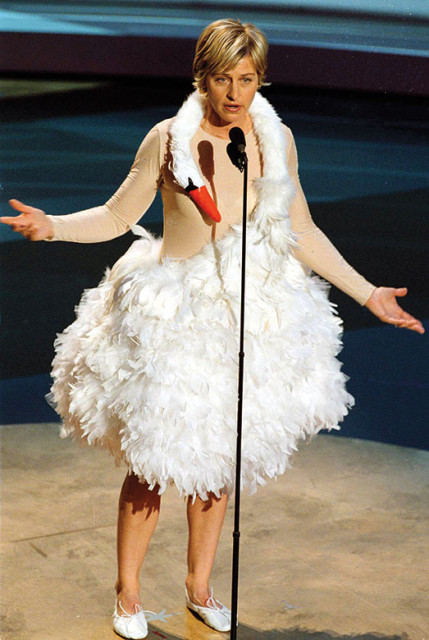After the soul-shaking violence of 9/11, many in the television industry — including Emmy nominees — questioned whether the 2001 show, originally scheduled for September 16, should go on.
It was rescheduled for October 7, then postponed again as U.S. and British planes began bombing targets in Afghanistan. After that, longtime executive producer Don Mischer had to drop out, due to his previous commitment to the Salt Lake City Olympics. Gary Smith stepped in for take three on November 4 — which happened to coincide with game seven of the World Series.
With the usual Emmy venue — L.A.'s Shrine Auditorium — unavailable, the show moved to the smaller Shubert Theatre in Century City. Reporters set up shop in a Chinese restaurant across the plaza. Stars trod a shortened red carpet in mostly somber attire. But many guests sported Yankee baseball caps (the Yanks were playing the Arizona Diamondbacks), while others chose headwear touting the heroic NYPD and FDNY.
Despite the much-changed circumstances, the show and its host, Ellen DeGeneres, drew praise. "Perfect host, perfect tone, perfectly hilarious," wrote critic Howard Rosenberg in the Los Angeles Times. And in the Hollywood Reporter, Ray Richmond wrote that the stage had been set for "the biggest travesty in the storied history of Hollywood self-congratulation. Instead — against all odds — it unfolded as one of the industry's proudest moments."
DeGeneres was credited with helping the country begin to heal and to laugh again, with lines like "I feel like I'm in a unique position as host because — think about it — what would bug the Taliban more than seeing a gay woman in a suit surrounded by Jews?" And it didn't hurt that she came onstage at one point in a swan dress, spoofing the Oscar garb of singer Björk. "I guess this is business casual," she quipped.
This article originally appeared in emmy magazine issue #7, 2023.





